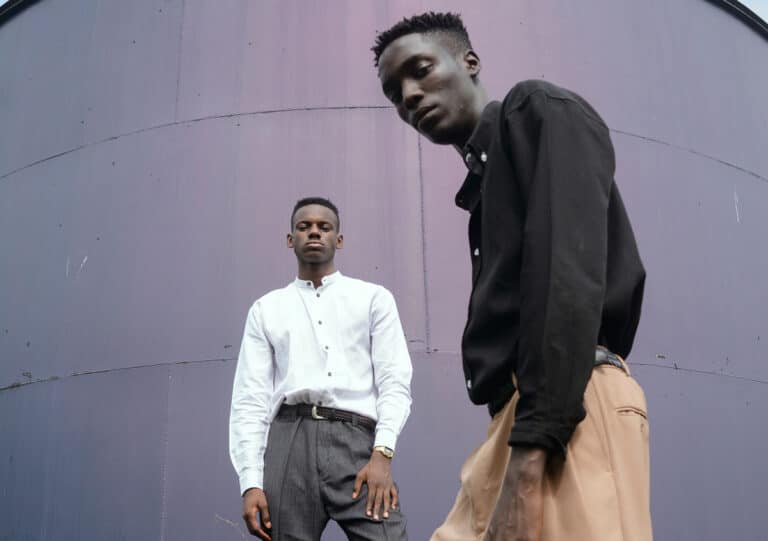What is Afrofuturism? Here’s how the ideology serves as a blueprint for cultural growth

Three years ago, Black Panther hit the big screen, breaking several records to secure the title of being the ‘10th highest-grossing film of all time’. Contrary to science fiction’s predominantly white history, the blockbuster featured an ‘Afrofuturistic’ superhero in a world where black people have the most advanced technology in the world. Introducing Afrofuturism, a concept muscling its way into pop culture for a more inclusive future.
What is Afrofuturism?
Coined in 1993 by scholar Mark Dery, the term ‘Afrofuturism’ refers to a cultural aesthetic and philosophy that explores the developing intersection of African diaspora culture with technology. The genre fundamentally seeks to reimagine a future filled with arts, science and technology as seen through a black cultural lens.
Harbouring themes of utopianism and liberalisation, Afrofuturism fosters a space for black artists to “tell stories of their limited past intertwined with their complex present to see a different future.” Much of its aesthetic tropes—including a rich colour palette, African iconography and a fascination with technoculture—were laid down by cosmic philosopher and jazz giant Sun Ra in the 1950s (around 40 years before the term was even coined).
Labelled “the pioneer of Afrofuturism,” Sun Ra floored his audience with bebop tunes performed to flashing lights and costumes. His music touched upon topics such as race, politics, religion and the future through psychedelic aesthetics that mixed the space-age with Ancient Egypt. With more than 1,000 recorded songs spanning over 100 albums under his belt, the jazz musician is well-known for his origin story of being “an alien sent to Earth on a mission to preach peace through music.”
‘Black Panther’ and reignited interests
Afrofuturism soared to commercial success with the release of Black Panther. Depicted as the world’s most technologically advanced country, the mythical land of Wakanda offered a prosperous alternative the African diaspora yearns for. Boasting rich resources like vibranium while deeply rooted in ancient traditions, the utopian society was quick to become a ‘digital-first continent’—providing glimpses of a desirable future.
Although its comics debuted way back in the 60s, the film renewed interest in Afrofuturism. In addition to the cast, Black Panther also had a predominantly black production team spearheading the story. Regarded “Afrofuturism at its best,” the critically-acclaimed blockbuster made huge cultural waves—in turn helping mainstream the Afrofuturistic movement.
Afrofuturism and the feminine wave
In its early terms, Afrofuturism was largely represented by men. It took nine decades after the science fiction genre was created and about 25 years after the term was coined before black women found their voice in the genre.
Now, the most popular names in Afrofuturism are made up of women. In the science fiction scene, Blade—a popular black male comic and film character—was quickly replaced by the character Storm from the X-men series. In music and pop culture, Regina King, Erykah Badu, Missy Elliott, and Solange Knowles have been credited with exploring the movement.
Janelle Monae’s genre-transcending music further topped the charts with futuristic music videos and radical aesthetics. Calling her fans “fAndroids,” the “Afrofuturistic queen” cited the genre as a major inspiration behind her music and narrative film Dirty Computer.
“Afrofuturism is me. It’s us,” she explained in a 30-second video clip for Spotify, “It is black people seeing ourselves in the future.” “I was writing this music that was really inspired by science fiction and Afrofuturism,” she told BBC Radio 1. She further admitted to feeling responsible for “telling these stories through the lens of a young black woman” and “speaking of a future where we are not the minority but the heroines, heroes and leaders.”
The leading role women now play in the genre has undoubtedly resulted in the generation of a lot of new direction and ideas. Their impact is said to have carried Afrofuturism to the “next level of storytelling where we see ourselves in a different context.”
In an essay titled Black To The Future, Mark Dery laid out the question driving the philosophy behind Afrofuturism. “Can a community whose past has been deliberately rubbed out, and whose energies have subsequently been consumed by the search for legible traces of its history, imagine possible futures?” he wrote back in 1993.
Fast-forwarding 28 years, Afrofuturism is said to be the ideal ‘cultural blueprint’ required to guide society. The genre imagines a world where black people achieve greatness while thriving in their own culture. The movement has also aided artists to connect not only to their origins—but with each other.
In an interview with Architectural Digest, Nova Sparks, author of The Dome Trilogy, illustrated how the genre has “inspired more of us to invest in our communities, to continue to dominate various fields and to move forward in our quest to reach back into our communities by creating opportunities and guidance for our youth.”
With the pandemic currently impacting black communities disproportionately, Afrofuturism’s power to imagine an inclusive and just society is becoming increasingly relevant.




